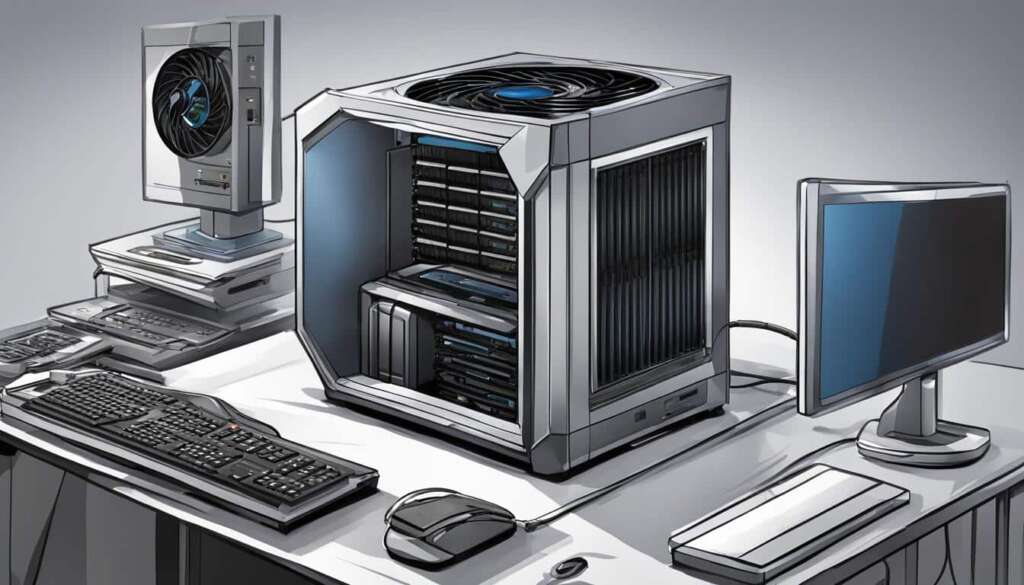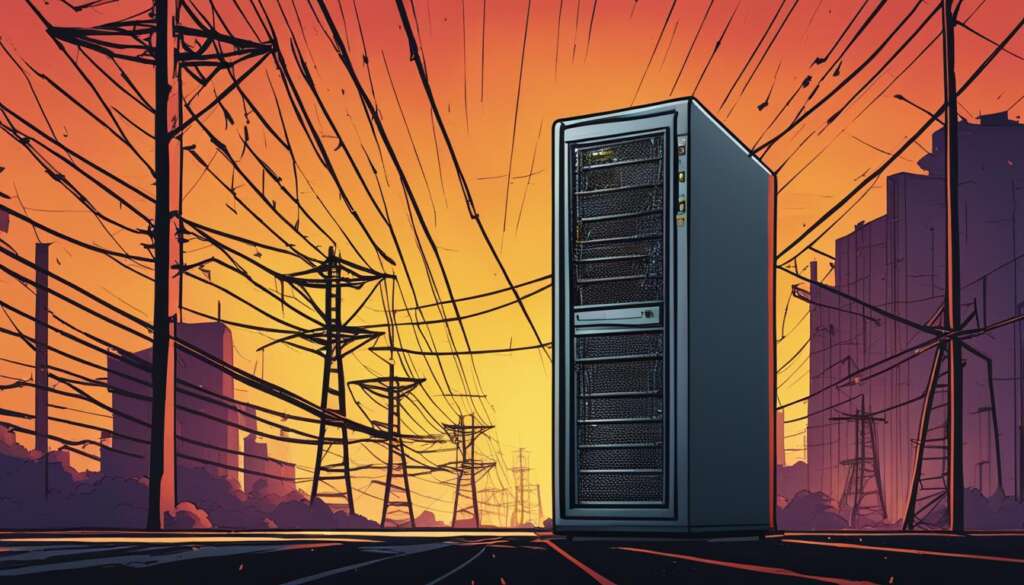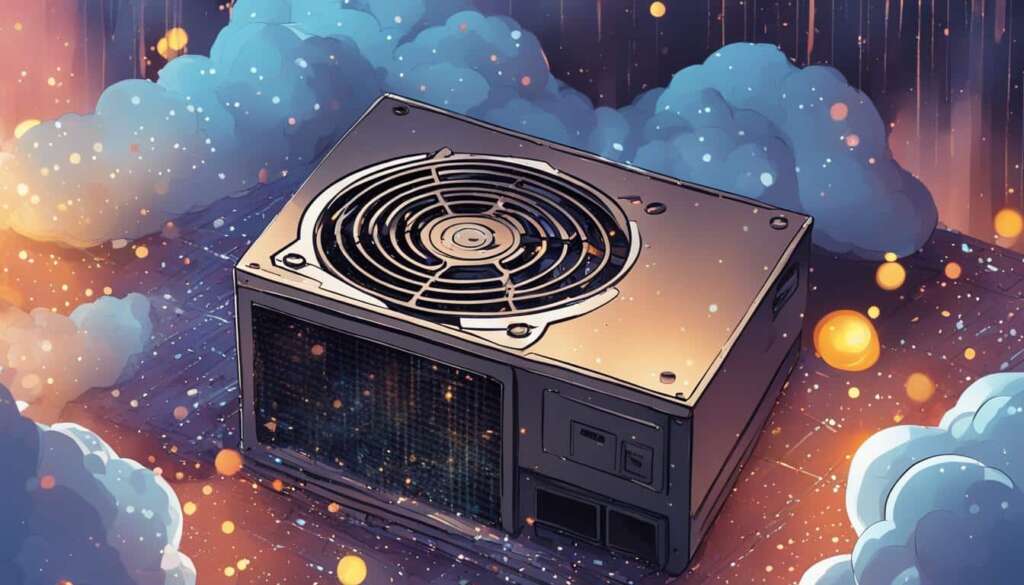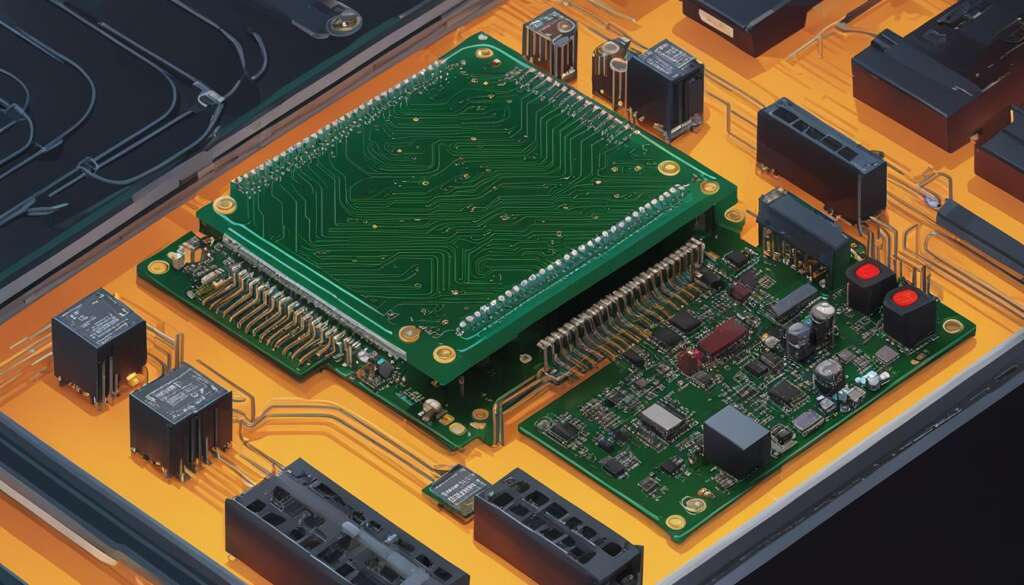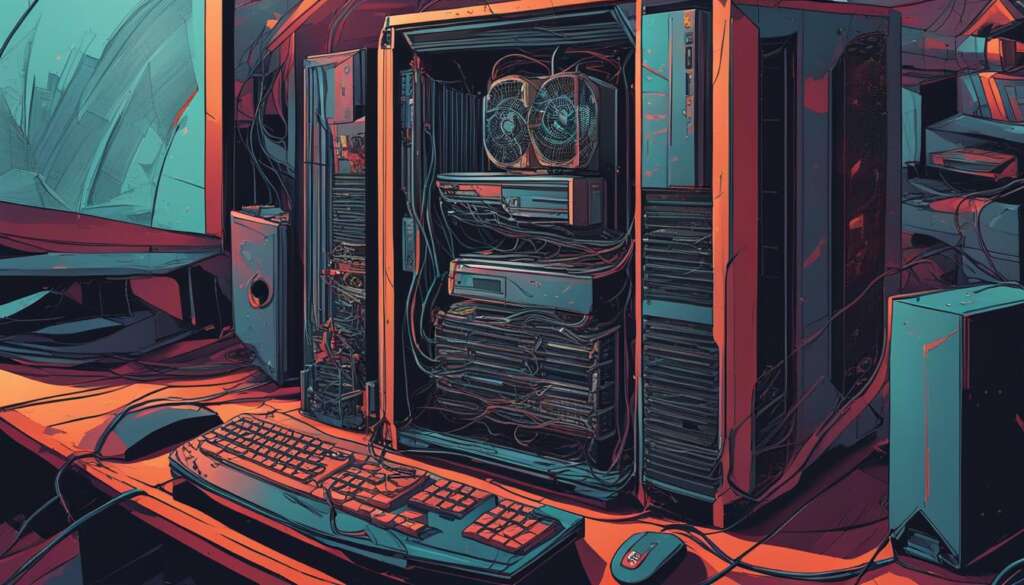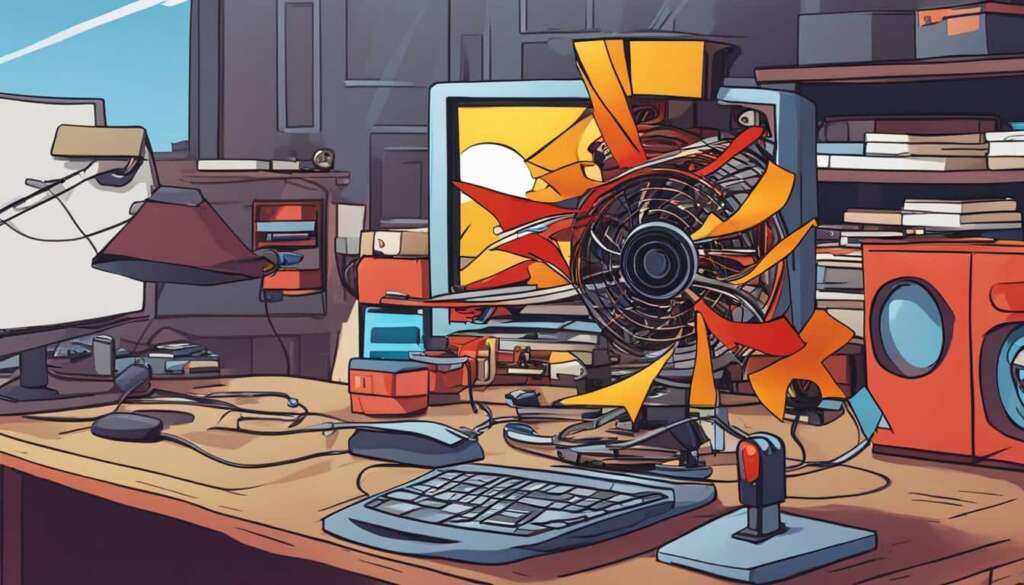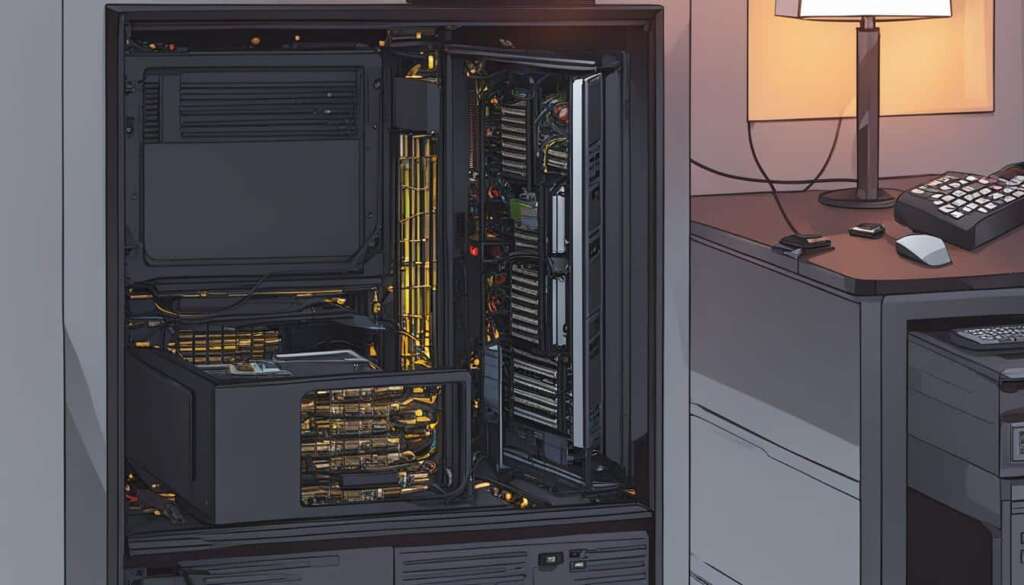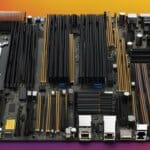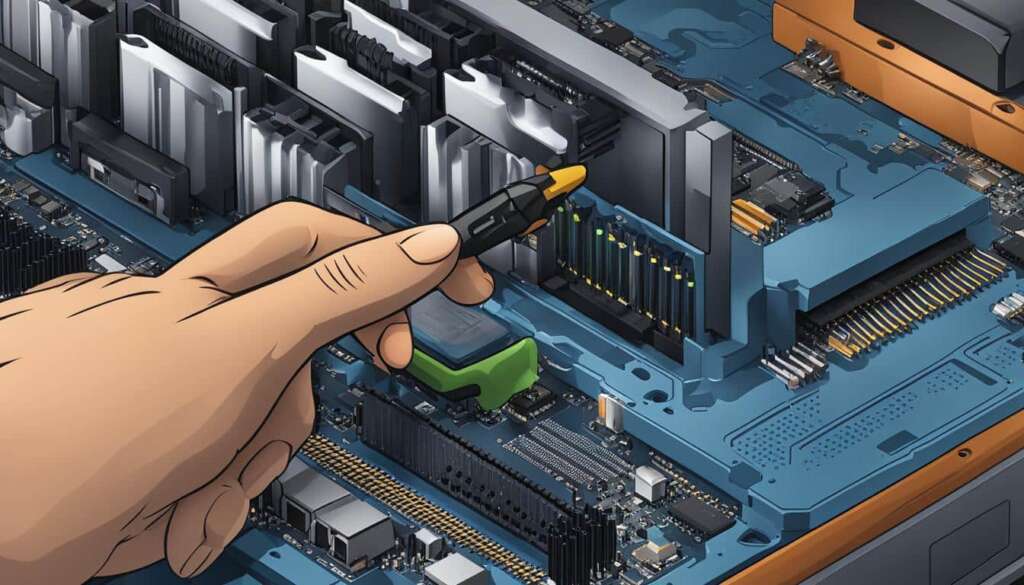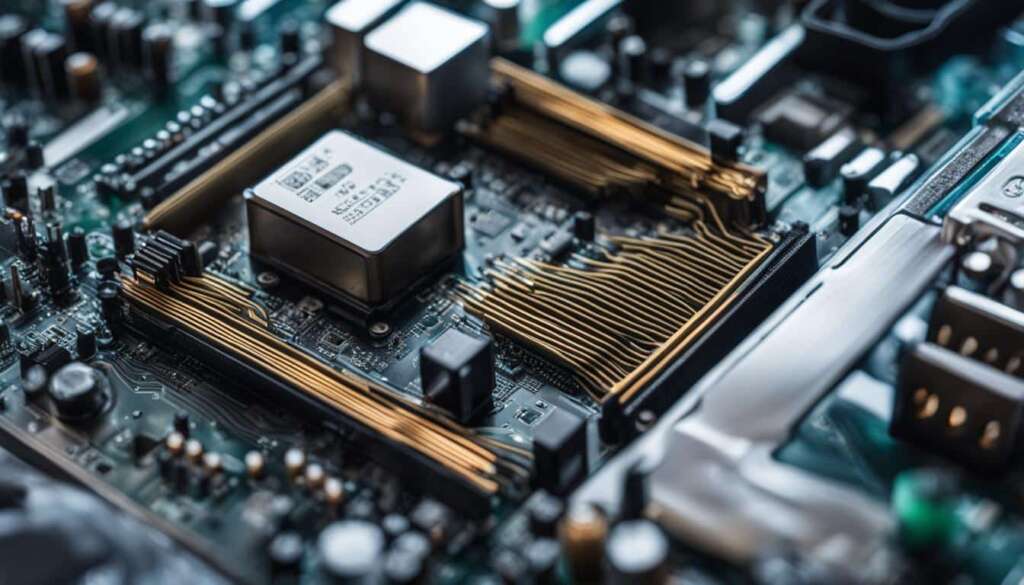Table of Contents
Are you tired of dealing with loud PC fans that disrupt your work or gaming experience? If you find yourself constantly annoyed by the buzzing and whirring noises coming from your computer, you’re not alone. Many PC users face the issue of noisy fans, and it can be both frustrating and distracting.
So, why do PC fans become so loud? There are several factors that contribute to this problem. One common cause is the high internal temperatures within your computer. Factors such as 100% disk usage, high RAM usage, or even dust and dirt buildup in the vents can lead to excessive heat. As a result, the fans have to work harder to cool down the system, which leads to increased noise levels.
While some fan noise is normal, persistent loud noise or rattling sounds can indicate underlying issues that need to be addressed. Ignoring these problems can impact your computer’s performance and even shorten its lifespan. That’s why it’s important to take steps to identify and resolve the reasons behind the loud fan noise.
To tackle this issue, you can start by closing any unnecessary background apps and processes that might be causing your PC to work harder than it needs to. Running regular malware scans is also essential, as infections can increase your computer’s temperature and cause the fans to spin faster. Another effective solution is to increase the airflow around your computer’s vents by ensuring they are clear of dust and debris.
Remember, persistent loud fan noise could be a sign of other performance issues or component problems, which may require further investigation and action. By addressing the reasons behind the loud fan noise, you can improve your computer’s performance, extend its lifespan, and enjoy a quieter computing experience.
Reasons for Loud PC Fan Noise
Loud PC fan noise can be an annoying and disruptive issue for many computer users. Understanding the reasons behind this noise can help you identify and resolve the underlying problems, ensuring a quieter and more efficient computing experience.
One of the primary factors that contribute to loud PC fan noise is the presence of demanding applications and processes that push the CPU to its limits. When the CPU is under heavy load, the fan speeds up to dissipate the heat generated, resulting in increased noise. Overclocking the CPU or GPU for enhanced performance can also cause the fan to spin faster and produce louder noise.
Another common cause of loud PC fan noise is the excessive number of open browser tabs. Each open tab consumes system resources, such as CPU and RAM, which can lead to increased fan speed and noise. It is essential to manage your browser tabs efficiently and close unnecessary tabs to reduce the strain on your computer’s resources.
Malware infections can also contribute to loud fan noise. Malicious software often strains the computer’s resources, causing the fan to work harder to cool down the system and generate more noise. Regularly scanning your computer for malware and removing any infections can help alleviate this issue.
Issues with the fan itself can also result in consistent loud noise. Loose components or firmware problems can cause the fan to vibrate or spin unevenly, leading to increased noise. In such cases, it may be necessary to repair or replace the fan to restore optimal functionality and reduce noise.
Identifying and addressing these underlying reasons for loud PC fan noise is crucial to ensure optimal performance and prevent further damage to your computer. By taking appropriate measures, such as managing processes, closing unnecessary browser tabs, scanning for malware, and addressing fan issues, you can minimize noise and create a quieter computing environment.
Common Reasons for Loud PC Fan Noise
| Reason | Description |
|---|---|
| Demanding Applications and Processes | High CPU usage from applications and processes leads to increased fan speed and noise. |
| Overclocking | Increased fan noise due to overclocking the CPU or GPU for enhanced performance. |
| Excessive Number of Open Browser Tabs | Each open tab consumes resources, causing the fan to work harder and generate more noise. |
| Malware Infections | Infections strain system resources, leading to increased fan speed and noise. |
| Issues with the Fan | Loose components or firmware problems can result in consistent loud noise. |
Tips to Reduce PC Fan Noise
If you’re tired of dealing with the constant noise of your PC fan, there are several steps you can take to create a quieter computing environment. One of the first things you can do is close demanding applications and processes that are consuming excessive CPU or disk resources, as this can help alleviate fan noise. Similarly, closing unnecessary browser tabs can reduce the strain on system resources and decrease fan speed.
Utilizing optimization software to clean up temporary files and remove unwanted programs can also significantly improve overall system performance and reduce fan noise. Another important measure is to ensure proper ventilation and airflow around your computer by keeping vents clear of dust and debris. This allows the fan to function more efficiently and reduces the need for it to spin at high speeds, therefore minimizing noise.
Additionally, allowing your computer to rest by turning it off for a few minutes can help lower fan activity and give it a chance to cool down. Performing regular malware scans and removing any infections can address potential threats that may be causing the fan to work harder and create noise. For advanced users, adjusting fan settings in the BIOS or using third-party software tools can provide more control over fan speed and help reduce noise levels. Lastly, remember to regularly clean out dust from the fan blades and consider replacing a failing fan if necessary to maintain optimal performance and reduce noise.
By implementing these tips, you can significantly reduce PC fan noise and create a quieter and more enjoyable computing experience. Not only will this make your PC more pleasant to use but it will also help prolong its lifespan by reducing strain on the components.
FAQ
Why are my PC fans so noisy?
PC fans can become loud and noisy due to various reasons, including high internal temperatures caused by factors such as 100% disk usage, high RAM usage, dust and dirt buildup in the vents, and lack of airflow. While it is normal for a fan to get loud at times, consistent loud noise or rattling might indicate underlying issues that need to be addressed.
What are the reasons for loud PC fan noise?
The source of the loud PC fan noise can be attributed to several factors. Some possible reasons include demanding applications and processes pushing the CPU to its limits, overclocking the CPU or GPU for increased performance, an excessive number of open browser tabs consuming more resources, malware infections increasing temperature, and issues with the fan itself such as loose components or firmware problems.
How can I reduce PC fan noise?
There are several steps you can take to reduce PC fan noise. Some suggestions include closing demanding applications and processes, closing unnecessary browser tabs, utilizing optimization software to clean up temporary files, ensuring proper ventilation and airflow, allowing the computer to rest by turning it off for a few minutes, performing regular malware scans, adjusting fan settings in the BIOS or using third-party software tools, and regularly cleaning out dust from the fan blades.
What should I do if my fan noise persists?
If the fan noise persists despite taking the above measures, it could be a sign of performance issues, component problems, or even malware infections. It is recommended to further investigate and take the necessary action to resolve these issues to ensure optimal performance and prevent further damage to your computer.

